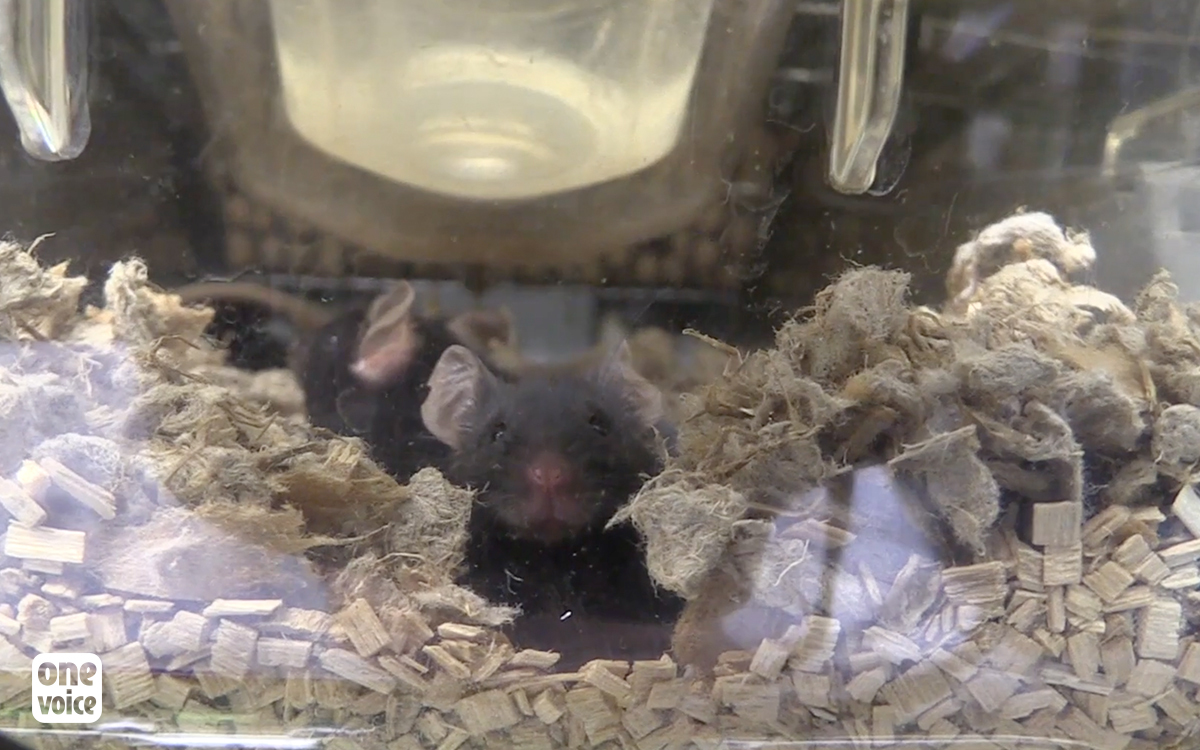

Forced swimming: other approaches are possible
The Ministry of Research has approved electric shock and forced swimming procedures this year in France, while businesses worldwide are abandoning this largely criticised test that lobbies have trouble defending. Animals should not suffer for us, especially as substitution methods and non-experimental solutions exist to help people who are suffering.
The recent uses of the forced swimming test do not look to mimic human depression (something which this test does very badly), but to predict the efficacy of molecules on the depressive state. Despite quite poor recent data in terms of the proportion of positive results for this prediction, we therefore cannot say that the forced swimming test is absolutely useless if it is carried out rigorously and with control of all of the variables that can influence the result. But the fact that a test using animals can be useful is not to say that it is justified.
Furthermore, as recently remarked by the NC3R (British centre mainly dedicated to alternatives for animal experimentation), effective molecules and pioneering routes could have been forgotten due to overconfidence in the results of this test.
In addition, other tests exist that are much less stressful for the animals, particularly in measuring their memory capacity to evaluate the effect of different molecules. But it is still the breeding of animals, caging them, and using them for our interests that is unacceptable.
Substitution methods
If we stick to ‘replacement’ as defined by French regulations, with the idea of aiming for the same short-term objectives and discovering the same experimental results without animals, the solutions are indeed very few but they exist and can be developed.
Cell culture research in this field does not allow us to estimate the behavioural effect of medications but is interesting in evaluating the biological effects which can be largely predictable concerning the efficacy of antidepressants. This is what was recently highlighted by the NC3R, by noting the predictive capacity already established in this field and the promising development of the amount of BDNF (brain-derived neurotrophic factor) in human blood and neuronal cell cultures.
From a technical standpoint, “computational psychiatry” is developed over several years, which will undoubtedly quickly make it possible to study many aspects of psychiatric diseases without hurting anyone.
But there may be better ways to measure: favouring prevention and putting favourable conditions in place for effective psychotherapy.
Prevention and non-medical treatments
When it comes to prevention, priority should be given to funding work on the external factors of depression and chronic stress in order to reduce the number of people affected by depression brought on by unfit working conditions or by exposure to a harmful social, political, and economic environment. Subsidies are not willingly extended. The money that funds forced swimming tests and the suffering inflicted on these animals is money that will not be used for working on the prevention of depression[1].
In addition, in a report from a very recent French documentary, Franck Ramus (a researcher in cognitive sciences) highlighted the link between the high use of psychoactive drugs in France and the superiority of the university curriculum for psychology by approaches based on beliefs rather than on proof, which had already been highlighted during a conference held in 2013 on this subject. The public therefore found themselves exposed to a majority of psychologists and psychiatrists who use unsuitable tools to treat them. Instead of funding the use of animals to develop medicine further, we can better use this money to embark upon an urgent reform of teaching psychotherapy and putting in place public information campaigns aiming to guide them towards effective treatments.
Animals must not suffer for us
Rats, these wonderful creatures full of empathy, who laugh, who play, who think, who feel emotions as complex as regret, do not have to suffer for us.
And what we can say for certain today is that the 600 rats who have been approved by the Ministry of Research to be used for repeated electric shock and forced swimming tests will suffer. This is happening in 2022, in France.
Join us in asking the Ministry of Research to ban these tests
- Template (download here) to send via the Ministry’s form
- By sending tweets to the Ministry following the examples below:
On cruelty
Click on the text to tweet: Stop electric shocks and forced swimming for animals! Public powers should not authorise these cruel experiments @sup_recherche #StopForcedSwimming #EndAnimalTesting #AnimalTesting https://ctt.ec/_h2fq+ via @onevoiceanimal
Click on the text to tweet: .@sup_recherche, France must commit, like laboratories abroad, to put an end to cruel forced swimming tests on mice and rats!
#StopForcedSwimming #EndAnimalTesting #AnimalTesting https://ctt.ec/UPW92+ via @onevoiceanimal
On alternatives
Click on the text to tweet: Making rats depressed with electric shocks will not give more effective treatments. Stop #AnimalTesting, sup_recherche ! #StopForcedSwimming #EndAnimalTesting https://ctt.ec/iV6Un+ via @onevoiceanimal
Click on the text to tweet: Instead of torturing rats to produce yet more medications, train psychologists and psychiatrists with 21st century tools!
@sup_recherche #StopForcedSwimming #EndAnimalTesting #AnimalTesting https://ctt.ec/omBL7+ via @onevoiceanimal
Click on the text to tweet: Stop electric shocks and forced swimming! More funding for in vitro methods! @sup_recherche #StopForcedSwimming #EndAnimalTesting #AnimalTesting https://ctt.ec/c1dLo+ via @onevoiceanimal
[1] The reallocation of funds is not particularly simple and must be done on a political level for public funding, and by raising awareness of foundations and other organisations for private subsidies. But this reallocation seems largely necessary when we see the suffering that is generated by the current allocation of funding.
This article is the fourth in a series of five on forced swimming:
- Electric shocks and forced swimming in France in 2022
- Forced swimming: footage
- Forced swimming: the businesses moving forward and the industry that resists
- Forced swimming: other approaches are possible
- Forced swimming: a long-term battle
Translated from the French by Joely Justice